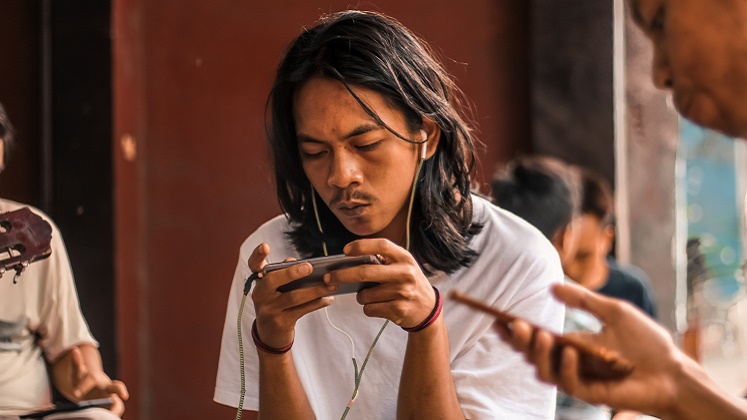 While some people are correlating COVID-19 with the zombie apocalypse – most of us understand that life will go on after the pandemic has come and gone. But that doesn’t mean things won’t change. The pandemic will cause large societal changes given the global impact of it. If we use psychology as our guide, what other changes might we see?
While some people are correlating COVID-19 with the zombie apocalypse – most of us understand that life will go on after the pandemic has come and gone. But that doesn’t mean things won’t change. The pandemic will cause large societal changes given the global impact of it. If we use psychology as our guide, what other changes might we see?
A heightened pressure to respond to conformity
Parasite-stress theory of values or sociality – also known as pathogen stress theory of cultural values – is the idea that we have psychological adaptations that function to adopt values dependent upon local infectious-disease adversity (Thornhill & Fincher, 2014). In other words, we have behavioural immune systems. Our behavioural immune system includes psychological traits and manifests behaviours for avoiding contact with infectious diseases. It also suggests conformity that manages the negative effects of infectious diseases, xenophobia (a strong and irrational, in this case pathological, fear of strangers), and philopatry (our tendency to stay in or habitually return to a particular area), etc. But are there some ways in which the pandemic influences how we behave and how it makes our societal cultures change?
A lot of people in the United States have already begun to perceive the heightened pressures of conformity. Social distancing has immediately developed into the new normal and people aren’t scared to call out behaviours that don’t adhere to rules of the suggested guideline. In other countries, pressures to conform to virus prevention efforts are even greater. France, for example, has legislated a national restriction regulation, with punishments of imprisonment for repeat breaches. These are everyday examples of what differences we might expect to see. Interestingly enough, if you ask what transformations we might observe as cultural psychologists, you’d probably get an ultimate explanation (addressing the “why” question).
A decrease in individualism to defend against disease communication
A 2008 research study in cultural psychology suggested that as predicted by the parasite-stress theory of values, countries that have a higher pathogen prevalence tend to endorse societal collectivism (Fincher et al., 2008). What is collectivism? Collectivism is defined by a strong value placed on tradition and conformity, whereas individualism is defined by a greater encouragement of deviation from the status quo. The graph below tallied in over 50 countries around the world shows that as pathogen prevalence increases, individualism decreases.

Why? This is because in the above-mentioned study, the authors suggested that societal collectivism acts as a natural defence against disease communication. Collectivists form clear distinctions between in-groups (an exclusive group of people with a shared interest or identity) and out-groups (those people who do not belong to a specific in-group), while with individualists, the in-group/out-group distinction is usually weaker. A result is that collectivists are more careful about contact with strangers and other out-group members. This xenophobic attitude can perform a powerful antipathogen role by inhibiting exposure to novel pathogens.
Of course, since collectivism can provide a defence against the dangers posed by pathogens, it isn’t surprising to see a study proving that individualistic values are related to an increase in the outbreaks of infectious diseases (Morand & Walther, 2018). The authors correlated the values of collectivism-individualism for 66 countries against their historical pathogen burden, recent number of infectious disease outbreaks and emerging infectious disease events, and four potentially confounding variables. The authors not only confirmed the previously established negative relationship between individualism and historical pathogen burden with new data, but also found significant positive correlations between individualism and the number of infectious disease outbreaks. We can see that individualistic cultures may have higher susceptibility to disease outbreaks.

As COVID-19 has spread around the world and been declared a pandemic by the World Health Organization, Europe and the United States had become the worst-affected regions, with Italy and Spain particularly hard hit, in contrast to more collectivist countries like China, South Korea, and Singapore.

At an ultimate level, collectivism can have a role in antipathogen defense. But a proximate explanation (addressing the “how” question) most likely leads citizens confronting a pandemic to feel a common fate with their compatriots. In his successful work, Bowling Alone: The Collapse and Revival of American Community (2000), political scientist Robert Putnam contended that up until the 1960s, people were more collectivistic than they have been in recent years. Putnam suggested that having survived World War II was a major cause in this change. The bloodshed unified the people for a shared goal more than any happening since. Putnam proposed that this significant event “changed all of those who experienced it, making them embedded in their social groups, with a sense of shared fate, that subsequent generations have not felt”. Whether this single transformational event is largely a proximate explanation of the dramatic change is not certain. However, at this point, it’s the single variable that has the most empirical evidence. Surely, if Putnam is right in finding the main culprit behind this cultural shift as a nationwide unifying event such as World War II, then we would expect that there would be a trend of increasing collectivism wherever this common suspect is found – that is, the COVID-19 disease pandemic. As UN Secretary General António Guterres has warned, “The current coronavirus outbreak is the biggest challenge for the world since War World II”.
So is the world destined to become an increasingly collectivistic environment? While there is nothing inherently better, or worse, about collectivism, like any set of beliefs and values, it has its benefits and flaws. Collectivism may expand its influence in the post-coronavirus world. Nonetheless, it’s good to keep in mind that we are not very capable of identifying the expected cultural changes that will take place over the next several decades. After all, a decade ago, for example, only a few epidemiologists and public health officials anticipated another disease pandemic such as this coronavirus.
Notes
- This blog post expresses the views of its author(s), not the position of The Department of Psychological and Behavioural Science or the London School of Economics.
- This blog post was originally written as part of PB101: Foundations of Psychological Science, a compulsory course on the BSc Psychological and Behavioural Science programme in the Department of Psychological and Behavioural Science at LSE. It has been published with the permission of the author. Visit the PBS website for more information on studying in the department: https://www.lse.ac.uk/PBS/Study.
- Featured image by Chapman Chow via Unsplash
Read more on this topic
• Book by Thornhill, Randy, Fincher, Corey L. – The Parasite-Stress Theory of Values and Sociality
• Evolutionary Theory and the Ultimate–Proximate Distinction in the Human Behavioral Sciences – Perspectives on Psychological Science
• Pathogen prevalence predicts human cross-cultural variability in individualism/collectivism – The Royal Society Publishing
• Individualistic values are related to an increase in the outbreaks of infectious diseases and zoonotic diseases – Nature
• Coronavirus world map: which countries have the most cases and deaths? – The Guardian
• Coronavirus: Greatest test since World War Two, says UN chief – BBC





The student who wrote this article, highlights what may be more important than the virus itself.
Written so early on, in the pandemic it is very prescient.
I’d love to know if the writer believes now at this point in the pandemic – if these human societal traits have left world citizens susceptible to being manipulated by power hungry leaders. Perhaps giving some credence to conspiracy theorists and Bill Gates detractors.
It sure seems that the “Other” mentality is being stoked.
Politicians and media fanning the flames of in group out group while refusing to provide data, rationale or open discourse amongst decision makers.
I believe there is a power grab taking place and the powerful are using the concept of this article as their tools of conformity